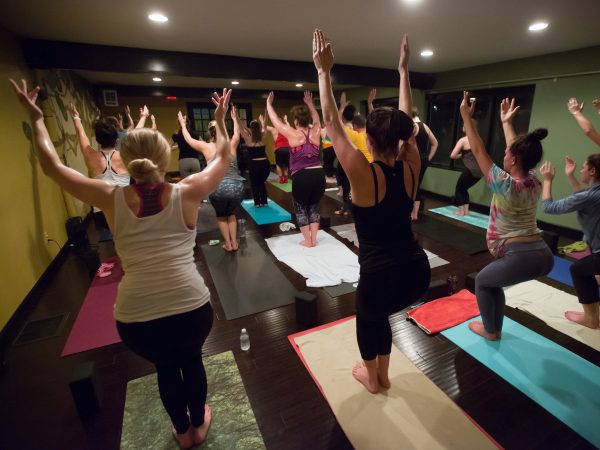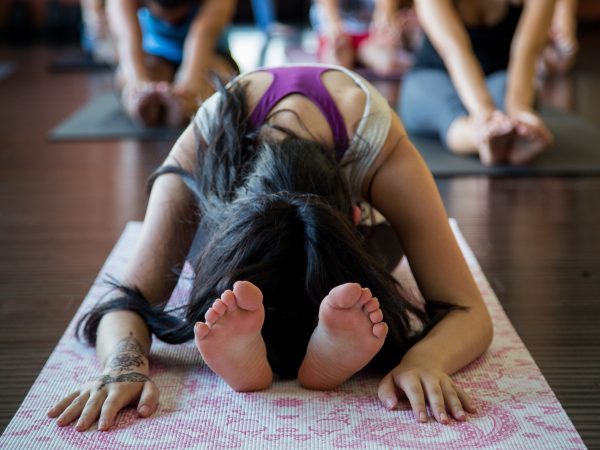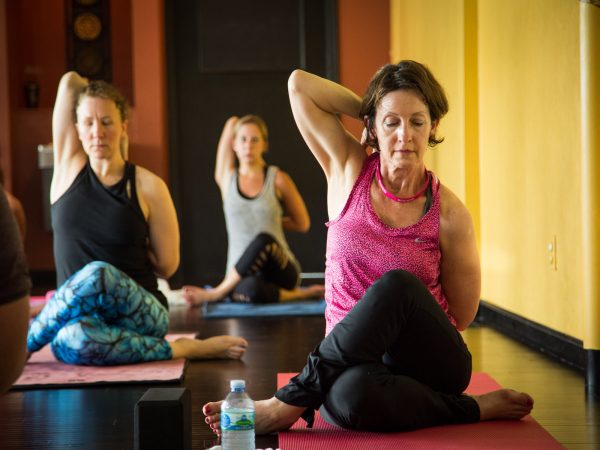A Yoga-Momma’s Dilemma: Ahimsa in the Real World
I’ve spent the past (almost) five years teaching my oldest daughter to live compassionately. We have taken time to sit and think about other people’s feelings. We regularly discuss how we would like all beings to be free from suffering, and how we absolutely have to do our part to help. Because of this, my daughter, and I, are bleeding heart, vegetarian pacifists. So when she came home from pre-school one day saying a boy was calling her names, my first reaction was to tell her to ignore him. That did not work. He continued to call her specifically “baby” every day (according to her). With my encouragement, she told him to stop, that she did not want to be called “baby.” But he has yet to listen to her.
About a month ago, she came home from school and told me she had a terrible day. The “mean boy” as she has taken to calling him, grabbed her while they were standing in line and she got in trouble for running in the hall. I asked if she told the teachers what he did, and she said that she did not. She does not want him to get into trouble. He kicked her a couple of weeks later, and again she did nothing. She has decided that she can take the bullying in order to protect his feelings. Right there, in that moment, I saw all of my teaching about compassion glaring back at me. Was it all a mistake? How can we teach our children to simultaneously treat people with unconditional compassion while still standing up for themselves?
Patanjali’s Yoga Sutras teach us to live life with a dedication to Ahimsa. Ahimsa is basically translated to “non-harming,” or “non-violence.” In our practice, this can mean not pushing yourself too far physically and getting hurt. It can mean not thinking ugly thoughts about the person showing up late, or the yogi next to you whose practice seems a bit “showy.”
In our lives, it can mean very similar things. Live a life that seeks to be kind and caring toward all beings. A dedicated yogi should try not to think ugly thoughts about anyone, no matter what their life choices. (This is easier said than done.) Many people view ahimsa as the root of vegetarianism for most yogis. For me, it means that I do not eat meat, and try to buy “humanely raised” eggs and dairy. It means that I try my best to watch my thoughts before they turn into words or actions. I recommend always stopping to ask yourself, “Is this helpful or hurtful?” “What am I trying to accomplish through these actions?” “Will this help the other person/being feel good or bad?”
So, when a little boy picks on my child I am torn. Honestly, I want her to punch him. I want her to learn to defend herself, because she is a girl in a world that likes to hurt girls and young women. I worry that this is the first in a long line of offenses that she will have to either fight, ignore, or confront. Firstly, I signed her up for Kung Fu, with an instructor who swears that his school of Kung Fu is about getting out of and avoiding a fight, rather than being good at fighting. I talked to her school teacher, whose initial response was a little less than satisfactory. The teacher will keep an eye on my daughter and have a talk with her. I’m hoping that under her teacher’s watchful eye the situation will not get worse.
This is one moment in a lifetime of complicated events, that leave me wondering, “How?” How do you stand up for yourself and not put another person down? Can you be better, but not be better than the person next to you, not have to stand above someone in order to feel as if you are accomplished? When discussing ahimsa with certain people, I am often asked the question, “what if they were to pull a gun on you and your family?” It has taken a lot of soul searching to find the answer to this, and this answer is the reason why all of my kids will learn to defend themselves. I believe that no matter how far down a path of violence a person has traveled, it hurts their soul to hurt others. Purposefully causing someone pain can break your heart. Therefore, being prepared and strong enough to stop an attack from progressing, even if that means hurting the aggressor, ultimately helps everyone in the situation. Stopping them from hurting you, can stop them from hurting themselves.
Can the act of standing up for yourself be an act of compassion, for yourself and the aggressor? Can we walk through this world gently, but still protect ourselves? I believe so. Ahimsa means non-harming. It can mean not allowing harm to come to anyone, including yourself. Often times, we think that in order to be kind we must put others first. But you can’t let yourself be beaten down. Stand up, and once you are up help other people up as well.





